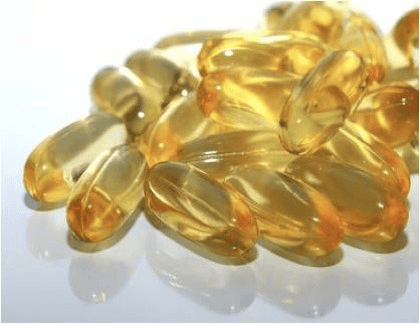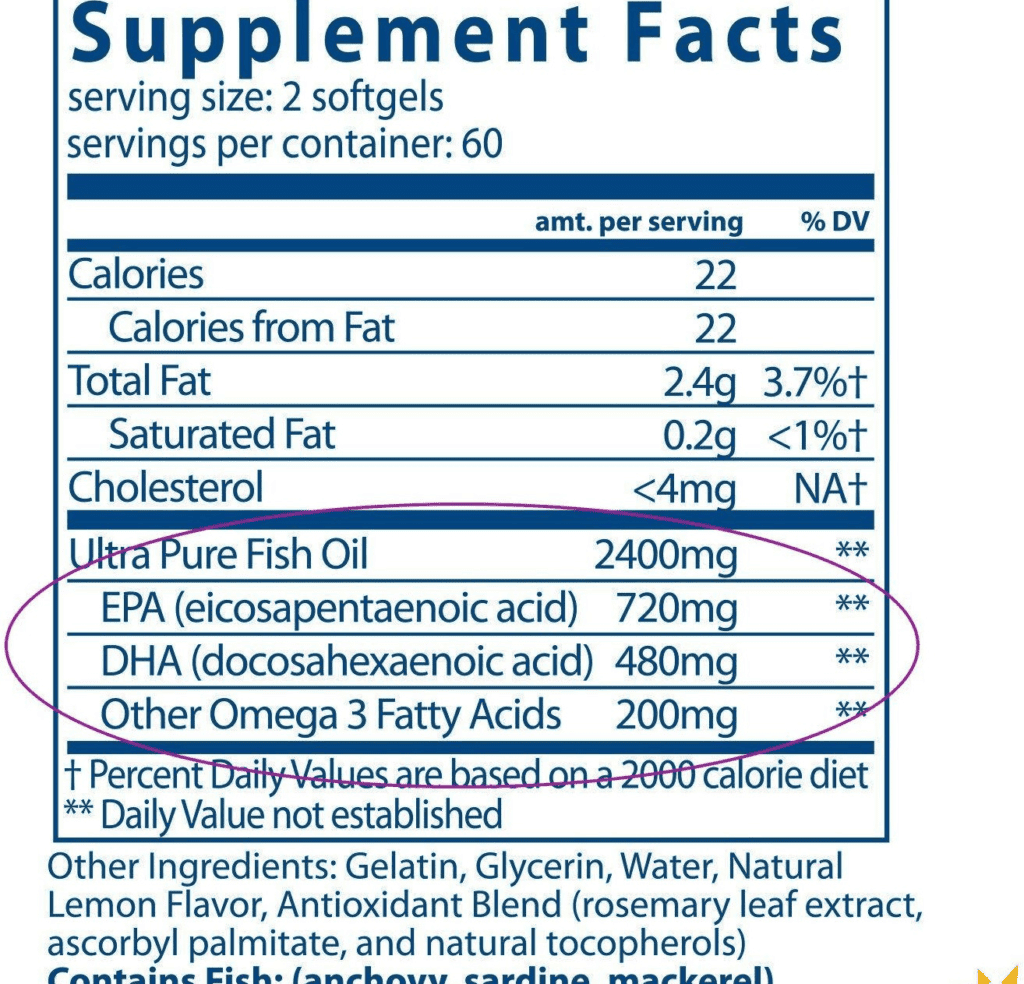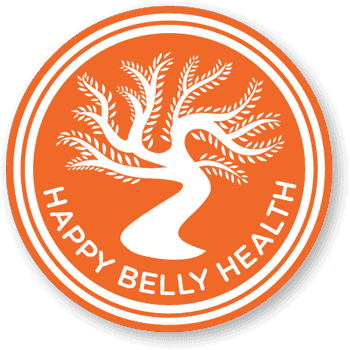You can’t open a magazine or newspaper without reading about Omega-3 fats. Yet, Omega-3 Essential Fatty Acids (or Omega-3s, for short) remain one of the top American nutrient deficiencies!
- The body needs all sorts of different fats to function properly. Even saturated fats play a critical role for survival.
- Like a miraculous chemistry set, the body can typically convert most types of fat into whatever type it is missing.
However, Omega-3s are an exception.
- They are one of only a few types of fats called “essential” because your body cannot make its own supply.
- Omega-3s must be consumed either through diet or supplements.
Why Omega-3s Are in the Headlines:
- Omega-3 fats are in the headlines so much today because we’ve discovered just how powerful they are at controlling inflammation.
- Deficiency of Omega-3s can lead to:
- Low energy
- Depression
- Weakness
- Vision and learning problems
- Dry skin
- Poor hair and nail growth
- Impaired digestion
- Increased risk of auto-immune conditions
- Cardiovascular disease, cancer, diabetes
- Weak bones
- Impaired liver and kidney function
- Poor glandular performance
- Poor reproductive performance
- Greater likelihood of becoming overweight
The good news is that Omega-3 fats are easy to consume – in either food or a supplement.
The most common source in the American diet is fish:
- If you enjoy a portion of fish every day, you likely have little concern about Omega-3 deficiency.
- It’s uncommon, for example, in much of Asia.
- Fish (especially fattier varieties like salmon, mackerel, halibut, sardines, and anchovies) has an abundance of EPA (eicosapentaenoic acid) and DHA (docosahexaenoic acid), types of Omega-3 that reduce inflammation throughout the body, especially for your heart, arteries, and brain (including depression).
- If you enjoy a portion of fish every day, you likely have little concern about Omega-3 deficiency.
For vegans:
- Algae, which is the dietary source of omega-3s for fish, is a quality alternative.
- Flaxseed is another abundant vegan source of omega-3s via ALA (alpha-linolenic acid), a type of Omega-3 which has been shown to reduce triglycerides, blood sugar, and potentially harmful LDL cholesterol.
- ALA is also found in foods such as walnuts, chia seeds, hemp, navy beans, and avocado.
- Algae, which is the dietary source of omega-3s for fish, is a quality alternative.
In a healthy body, we can convert excess ALA to EPA and DHA, but only up to about 8% for men and 10-20% in women!
- Between poor overall conversion of ALA and common inadequate intake of EPA and DHA, most people likely need an Omega-3 supplement to reach adequate levels of this critical nutrient.

Fish and Algae Oils: A Better Choice Over Flaxseed Oil
- Fish and algae oils are likely better choices for Omega-3 intake compared to flaxseed oil.
- Oxidized (or rancid) fats cause inflammation instead of preventing it, and flaxseed oil is particularly vulnerable to oxidation from heat, light, and air.
- If you choose to obtain ALA Omega-3s from flaxseed, eating freshly ground flaxseed is a better alternative.
Where Did Cavemen Buy Their Fish Oil?
- If Omega-3s are so important, how did early humans thrive on a limited diet, especially those living inland without fish and with minimal, seasonal food choices?
- They certainly didn’t zip down to the Vitamin Shoppe! The answer is grass.
- Fish aren’t high in Omega-3s because of anything endemic in fish; it’s because fish eat algae and seaweed. These foods are rich in Omega-3s, which are then present in the fish’s flesh.
- Early humans obtained Omega-3s from the meat they hunted.
- Fish aren’t high in Omega-3s because of anything endemic in fish; it’s because fish eat algae and seaweed. These foods are rich in Omega-3s, which are then present in the fish’s flesh.
Grass-Fed Meat and Dairy: Complementary Omega-3 Sources
- Meat today from grass-fed, pastured, or wild animals that forage for natural foods also contains Omega-3s.
- The dairy from these animals is another complementary source of Omega-3s.
- Factory farming practices in the US typically involve animals never allowed on pasture and fed corn feed soaked in high-fructose corn syrup.
- The impact? No Omega-3s in conventionally raised meat.
- The impact? No Omega-3s in conventionally raised meat.
The Modern Imbalance of Fats
- Early humans did not struggle with the imbalance of fats that the typical American diet presents today.
- Due to economic subsidies of corn and soybeans, most of the oil consumed by Americans comes from Omega-6 oils (e.g., corn, soybean, safflower, sunflower).
- These are commonly found in convenience, processed snack, drive-thru, and restaurant foods.
- As a result, Americans consume a lot of Omega-6s!
- These are commonly found in convenience, processed snack, drive-thru, and restaurant foods.
- Early humans consumed Omega-3s and Omega-6s in a 1-3:1 ratio.
- Today, our ratio is closer to 30 or even 50:1.
- The impact? Omega-6s become inflammatory, and we suffer from Omega-3 deficiencies.
- Today, our ratio is closer to 30 or even 50:1.

Considering Omega-3 Supplements: Are You Getting Enough?
If your diet isn’t providing a consistent daily dose of Omega-3s, a fish or algae oil supplement may be necessary. Here’s what you need to know:
- Supplement Forms: Omega-3 supplements are available in various forms, including softgels, liquids, and even gummies for kids.
- Recommended Dosage:
- Healthy Adults: An additional 1000mg of Omega-3 fats per day is generally beneficial.
- Chronic Inflammation: You may need as much as 2000-3000mg Omega-3s daily.
- Healthy Adults: An additional 1000mg of Omega-3 fats per day is generally beneficial.
- Reading Supplement Labels:
- This is not the same as 1000mg of fish oil; make sure to carefully read the supplement label for the total Omega-3 content (sum of EPA, DHA, and other Omega-3s).
- Beware of Bargains: Many low-end manufacturers dilute their fish oil. For example, 1000mg of fish oil might contain minimal actual Omega-3s, requiring you to take 6 or 8 capsules to get a good dose.
- This is not the same as 1000mg of fish oil; make sure to carefully read the supplement label for the total Omega-3 content (sum of EPA, DHA, and other Omega-3s).
- Concentration Matters:
- Sometimes, seemingly more expensive brands are a better deal because they are more concentrated, meaning your daily dose requires fewer softgels.
- Sometimes, seemingly more expensive brands are a better deal because they are more concentrated, meaning your daily dose requires fewer softgels.
- Check for Purity:
- Ensure your Omega-3 supplement is purity certified by a 3rd party and preferably molecularly distilled.
- Avoid Cheap Fish Oils: Cheap fish oil capsules often have a fishy taste and smell and may contain dangerous contaminants like PCBs and heavy metals (especially mercury).
- Far worse than not getting enough Omega-3 fats is becoming toxic in the process of getting them. Supplements are not where you want to choose the cheapest option.
- Ensure your Omega-3 supplement is purity certified by a 3rd party and preferably molecularly distilled.
Quality Recommendations:
From widely available brands, Nordic Naturals and Carlson are of good quality. Your healthcare practitioner may also have other quality recommendations.
If you would like some customized support to delve deeper into your health and nutrition, let’s chat.
© Purpose Inc., The School of Applied Functional MedicineTM





